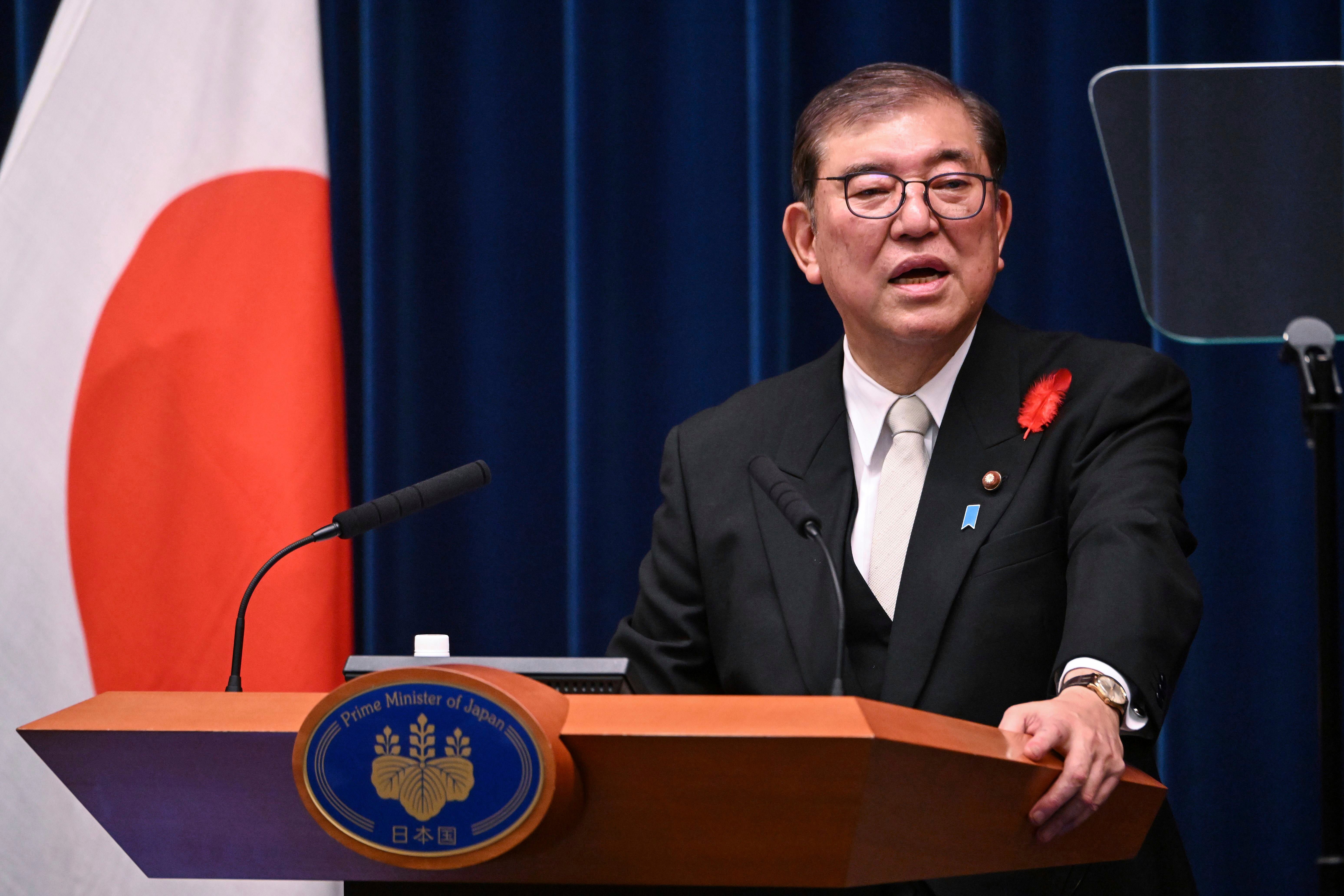Japan's new government welcomes 'forward-looking' congratulatory message from China
Japan’s new government says it hopes to improve ties with China after receiving a “forward-looking” congratulatory message from Beijing on the election of Prime Minister Shigeru Ishiba

Japan's new government said Wednesday it hopes to improve ties with China after receiving a “forward-looking” congratulatory message from Beijing on the election of Prime Minister Shigeru Ishiba.
Ties between Japan and China have been strained by a territorial dispute, Japan's wartime history, and most recently, the killing of a Japanese schoolboy in China.
In a message on Tuesday congratulating Ishiba, Chinese President Xi Jinping said it was in the interests of both countries to pursue peaceful coexistence, friendship and mutually beneficial cooperation.
Xi also expressed hope that Japan would work with China to meet each other halfway and build a constructive and stable relationship reflecting the requirements of the new era.
“We take the congratulatory message that came on the day of the inauguration as President Xi’s forward-looking message toward Japan-China relations,” Japanese chief government spokesperson Yoshimasa Hayashi said.
Hayashi said Japan and China have many issues and concerns, but Tokyo hopes to build a constructive and stable relationship through mutual effort. He said Japan also wants to promote communication with China at all levels to deepen their relationship.
Separately, new Japanese Foreign Minister Takeshi Iwaya said Japan needs to balance dialogue and deterrence in dealing with China because of its increasingly assertive military actions and territorial claims.
Iwaya said he hopes to meet with his counterpart, Wang Yi, as soon as possible, though nothing had been scheduled.
Ishiba made his diplomatic debut on Wednesday via telephone, starting with U.S. President Joe Biden, who called to congratulate him.
The two leaders affirmed their commitment to continue strengthening defense cooperation and maintain peace and stability in the region through a network of like-minded partners, including Australia and India through the Quadrilateral Security Dialogue, and through trilateral partnerships with South Korea and the Philippines, according to Japanese and U.S. officials.
Ishiba said he did not bring up his proposal of a more equitable Japan-U.S. security alliance and a revision of the legal status of American military bases and personnel in Japan but would do so later. Japan hosts about 50,000 American troops under a bilateral security pact.
Ishiba said he told Biden he plans to strengthen Japan's defense and diplomatic policies. A national security strategy adopted in 2022 under Ishiba's predecessor, Fumio Kishida, calls for accelerating Japan's military buildup.
Ishiba also held talks on Wednesday by telephone with South Korean President Yoon Suk Yeol and Australian Prime Minister Anthony Albanese in which they agreed to strengthen cooperation in security and other areas, the Japanese Foreign Ministry said.